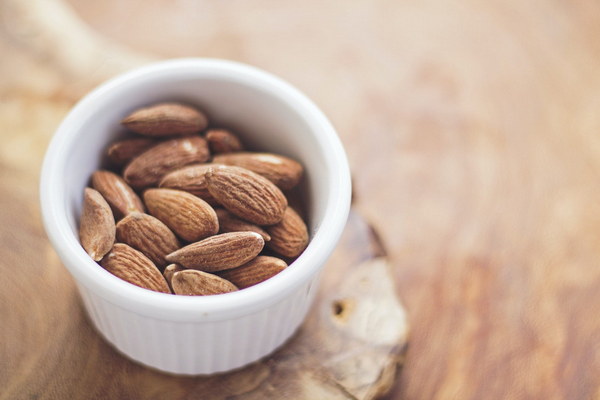Breath of Fresh Air How to Nourish Your Lungs After Smoking
Introduction:
Smoking is a well-known hazard to lung health, leading to various respiratory issues and diseases. If you have been smoking and are looking to improve your lung function, it's crucial to adopt a holistic approach to lung care. This article delves into practical tips and lifestyle changes that can help nourish your lungs after quitting smoking.
1. Quit Smoking:
The first and most important step in lung care is to quit smoking. The longer you avoid smoking, the faster your lungs can begin to heal. Seek support from friends, family, or professional help such as counseling or nicotine replacement therapy to increase your chances of quitting successfully.
2. Increase Oxygen Intake:
Lungs need a constant supply of oxygen to function properly. Engage in activities that increase your oxygen intake, such as walking, cycling, or swimming. These exercises enhance lung capacity and promote overall respiratory health.
3. Practice Deep Breathing:

Deep breathing exercises can help improve lung capacity and clear out mucus. Try the following techniques:
- Pursed-lip breathing: Inhale deeply through your nose, then exhale slowly through pursed lips as if blowing out a candle.
- Diaphragmatic breathing: Lie on your back and place one hand on your chest and the other on your belly. Inhale deeply, allowing your abdomen to rise, then exhale slowly, pushing the air out of your lungs.
4. Stay Hydrated:
Drinking plenty of water helps maintain the elasticity of lung tissue and aids in mucus clearance. Aim for at least 8 glasses of water a day to keep your lungs hydrated.
5. Avoid Air Pollutants:
Air pollution can exacerbate respiratory problems. Minimize exposure to smoke, dust, and chemical fumes. Use air purifiers in your home, and consider using a mask when outdoors in polluted areas.
6. Eat a Healthy Diet:
A balanced diet rich in vitamins, minerals, and antioxidants can support lung health. Include the following foods in your diet:
- Fruits and vegetables: High in antioxidants that protect lung tissue.
- Nuts and seeds: Contain healthy fats, vitamins, and minerals that promote lung function.
- Lean proteins: Help repair lung tissue and boost immune function.
- Omega-3 fatty acids: Found in fish, flaxseeds, and walnuts, these fatty acids reduce inflammation and improve lung function.
7. Avoid Smoking Triggers:
Identify and avoid triggers that make you crave cigarettes, such as alcohol, coffee, or certain social settings. Replace these triggers with healthy alternatives, like a cup of herbal tea or a brisk walk.
8. Manage Stress:
Stress can exacerbate respiratory problems and increase the urge to smoke. Practice stress-reducing techniques such as meditation, yoga, or deep-breathing exercises to maintain a calm and relaxed state.
9. Get Regular Check-ups:
Regular check-ups with your healthcare provider can help monitor your lung health and detect any early signs of lung disease. Discuss your concerns and ask for personalized advice on maintaining lung health.
10. Consider Pulmonary Rehabilitation:
If you have chronic respiratory issues, pulmonary rehabilitation can help improve lung function, increase exercise tolerance, and enhance overall quality of life. This program may include exercise, breathing techniques, and education on lung health.
Conclusion:
Improving lung health after smoking is a gradual process that requires dedication and commitment. By adopting these practical tips and making lifestyle changes, you can nourish your lungs and reduce the risk of respiratory diseases. Remember, it's never too late to start taking care of your lungs.









